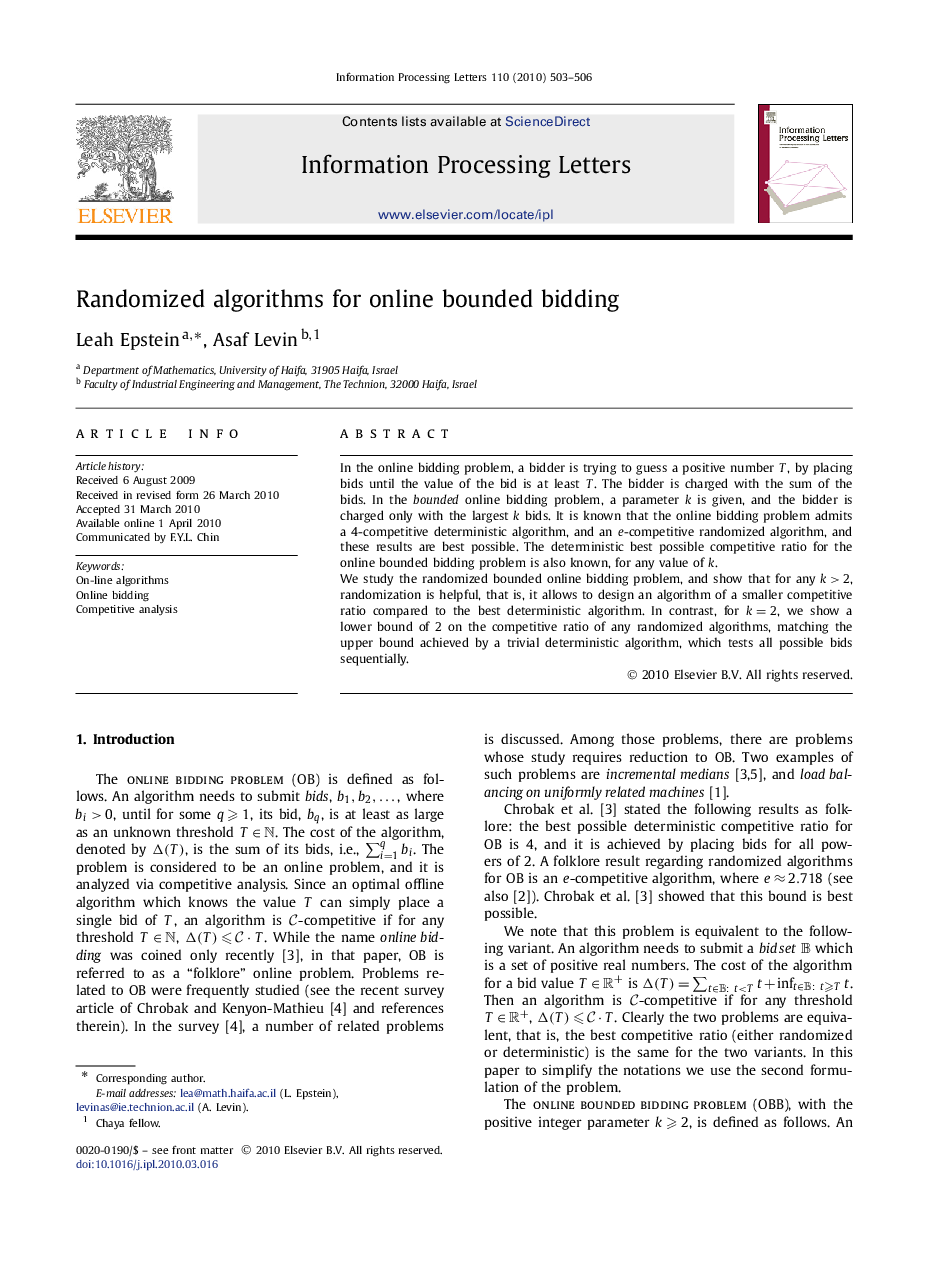| Article ID | Journal | Published Year | Pages | File Type |
|---|---|---|---|---|
| 428005 | Information Processing Letters | 2010 | 4 Pages |
In the online bidding problem, a bidder is trying to guess a positive number T, by placing bids until the value of the bid is at least T. The bidder is charged with the sum of the bids. In the bounded online bidding problem, a parameter k is given, and the bidder is charged only with the largest k bids. It is known that the online bidding problem admits a 4-competitive deterministic algorithm, and an e-competitive randomized algorithm, and these results are best possible. The deterministic best possible competitive ratio for the online bounded bidding problem is also known, for any value of k.We study the randomized bounded online bidding problem, and show that for any k>2, randomization is helpful, that is, it allows to design an algorithm of a smaller competitive ratio compared to the best deterministic algorithm. In contrast, for k=2, we show a lower bound of 2 on the competitive ratio of any randomized algorithms, matching the upper bound achieved by a trivial deterministic algorithm, which tests all possible bids sequentially.
